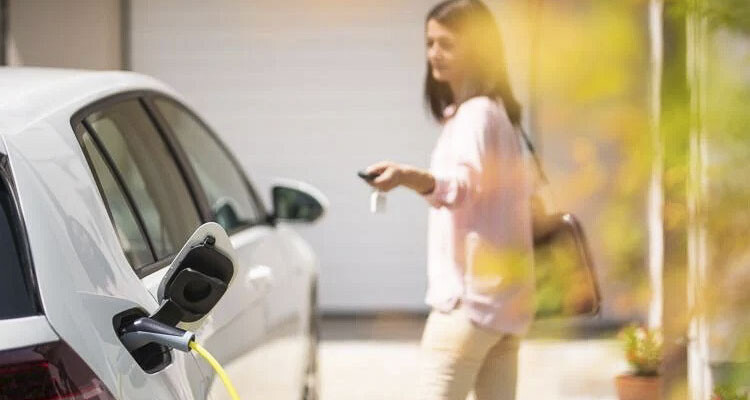
The strategy is connected to a state goal of reaching 100% electric vehicle sales by 2030
TJ Martinell
The Center Square Washington
The state of Washington might create a “cash for clunkers” program to subsidize the purchase of electric vehicles and encourage a transition away from high emission gas vehicles.
It’s one of several potential recommendations under consideration by the state Electric Vehicle Advisory Committee to include in an impending Transportation Electrification Strategy update.
The strategy is connected to a state goal of reaching 100% electric vehicle sales by 2030 and is intended to ensure “that electric vehicle incentives and infrastructure are accessible and available to all Washingtonians.”
According to a TES scenario analysis, “ensuring EV purchase prices are affordable is a key lever for reaching sales goals.” The Seattle Times last year reported that the average cost of an electric vehicle is $66,000, while the statewide median household income is $82,000 according to the U.S. Census.
The draft recommendation by the advisory committee would be to offer a per-vehicle “incentive” of $15,000 for a new or used electric vehicle, at the cost of $450 million over 12 years. The goal would be to have 360,000 gas vehicles scrapped and replaced with electric vehicles.
A similar program was created by the federal government in 2008 known as “Cash for Clunkers,” in which participants could receive $4,500 for their old vehicles. The program ended in 2009 after the government spent $3 billion on it.
Advisory group member Susan Baird-Joshi told colleagues at an Aug. 17 meeting that “I’m hoping this dollar amount is more of an incentive for people to actually trade in their vehicle and be able to get a replacement vehicle that they can use.”
However, Northwest Seaport Alliance Environmental Project Manager Niccolo Graham, also an advisory group member, said at the same meeting that port-run truck scrapping programs “can be a huge, huge administrative burden. If we’re talking about 360,00 cars coming their [scrap yards] way, they should be prepared.”
The TES update will be finalized in December. Public comment will be accepted starting in September through October.
This report was first published by The Center Square Washington.
Also read:
- Camas girls basketball: Defending champions look to learn from mistakes with a tough scheduleCamas girls basketball faces growing pains as they aim to defend their state championship with a young, talented team.
- Clark County Today Sports Podcast, Dec 19, 2024: Discussing the protocol on voting for WIAA amendments, plus a look at some of the amendments that will be voted on in 2025Clark County Today Sports Podcast reviews Camas and Seton Catholic football, WIAA amendments, and winter sports.
- Biden Energy Dept. deals another blow to natural gas supportersThe Department of Energy’s new rules and a report on LNG exports have sparked debates among natural gas supporters and environmental advocates.
- Opinion: Courts blocking the Kroger-Albertson merger won’t stop consumers from making choicesPaul Guppy of Washington Policy Center critiques judicial rulings that block the Kroger-Albertsons merger, citing changing consumer trends and potential job losses.
- Pac Coast Wrestling to return to Clark County Event Center Dec. 27-28The Pac Coast Wrestling Championships, featuring over 100 teams, return to the Clark County Event Center Dec. 27-28 for two days of thrilling competition.
- Mountain View now runs Clark County’s high school basketball holiday tournamentThe Mountain View Holiday Invite will host eight boys basketball teams, including five from Clark County, from Dec. 26-28 in a showcase of local talent.
- GoFundMe spotlight: Fundraiser for four injured in food truck explosionA fundraiser has been launched to support four individuals injured in the 4 Caminos food truck explosion in Vancouver, Washington.











